At Rest Under Enemy Soil
By Marg Powell, Specialist Library Technician, Metadata Services | 21 November 2016
We don’t have a photograph of Selby Russell, but we can paint a picture of him, through the correspondence of Mrs Annie Wheeler, and so tell you his story.
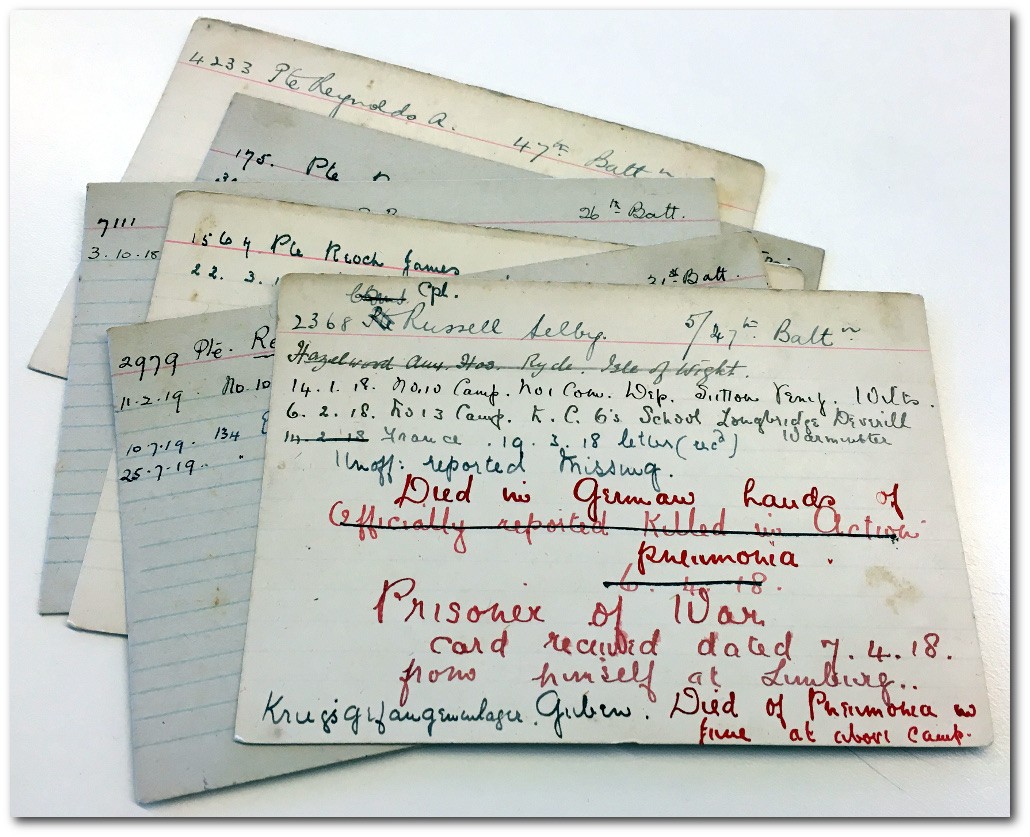
When he left the training camp at Enoggera in September 1916, now as Corporal, he was part of the 5th reinforcements of the 47th Infantry Battalion, destined to serve in France.
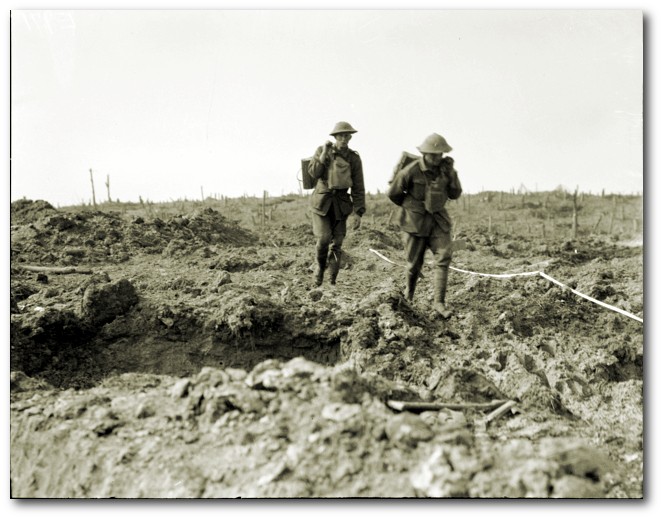
On 12 October Selby was wounded severely in his right leg and evacuated to England and the 5th Southern General Hospital, Portsmouth. It was during his stay in England that his family sought word of him, via Mrs Wheeler.
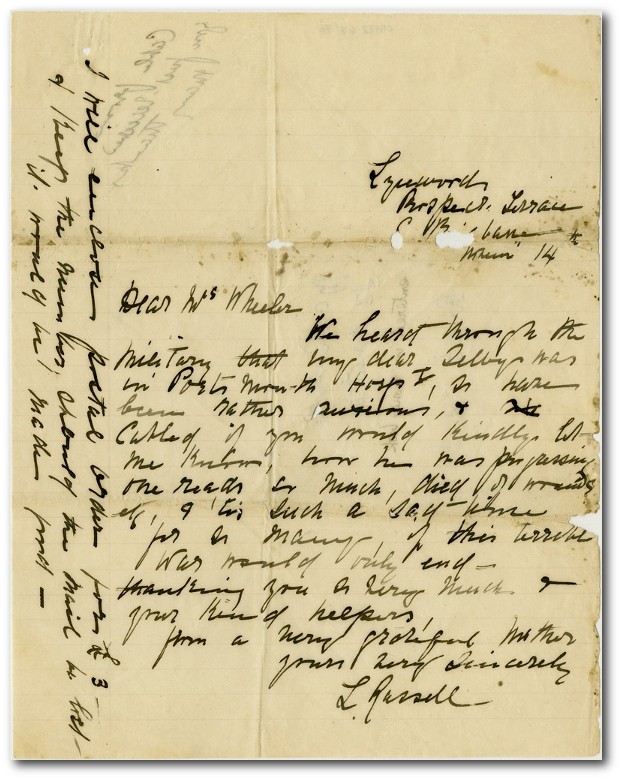
Selby’s mother Louisa, cabled and wrote to her, asking if she knew how he was progressing, enclosing a donation for her efforts. Annie cabled the desperate Louisa Russell and followed up with a comforting letter, Selby had been in several times to visit, and "was looking well".
With leave over the New Year, Selby returned to his Battalion in February 1918, where once again they were taking part in a major offensive.
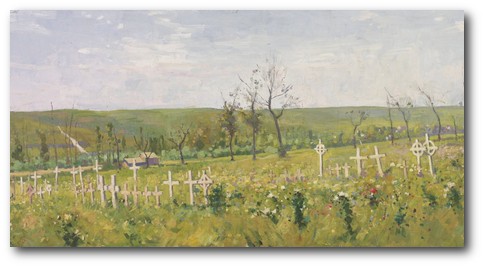
Dernanacourt, AWM ART11423.003
In March and April of 1918 the 47th Battalion were part of the attacks on Dernancourt, a village on the River Ancre.On 5 April, Selby Russell was promoted to Sergeant, he and his men were faced with a massive attack, having already been in the front lines for 4 days straight. It had was a day of “heroic endeavour on the part of all ranks” with many men lost.
Reported Killed in Action, the Russell family in Brisbane received notice by telegram of this sad news, only to be informed a month later that he was a prisoner in “German hands”.
Hit by a shell in the left foot, Selby was captured during the action at Dernancourt and taken to a POW hospital in Germany. Unable to save the foot it was amputated at the ankle. He was able to send two postcards, the contents of which reached Annie Wheeler, who cabled his family directly, “official report killed false, have received card from Selby …”
The family’s joy was however short-lived. The Prisoner Office in London received a letter reporting that Selby had died of double pneumonia 15 June 1918.
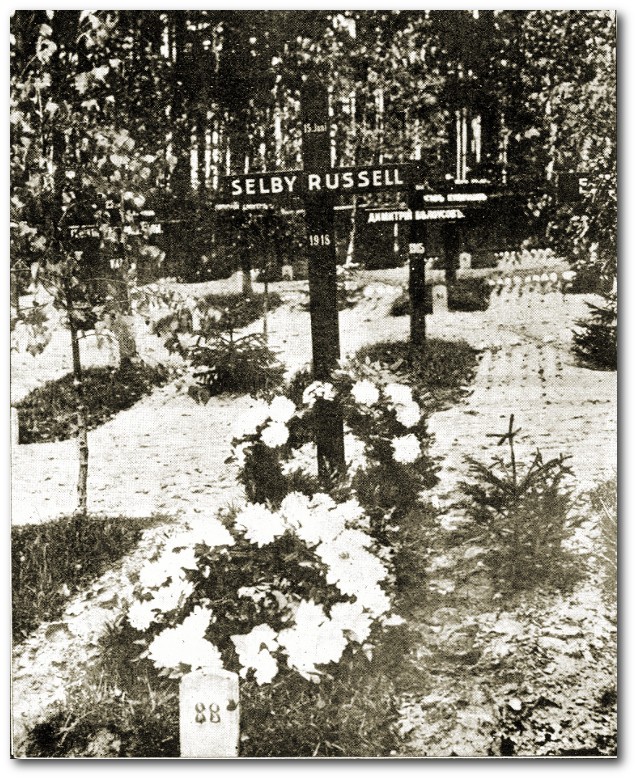
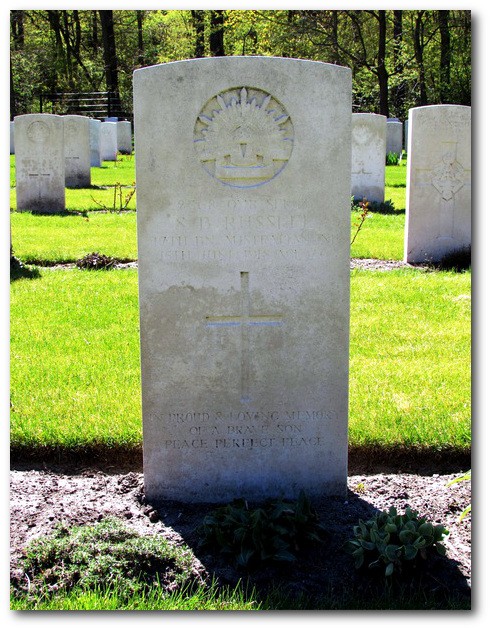
Russell's grave, Berlin South Western Cemetery
At the end of the war, the War Graves Commission were tasked with consolidating WW1 grave-sites and cemeteries. Selby’s remains were exhumed and interned in the Berlin South Western Cemetery, where his engraved headstone remains to this day.Selby’s sister, Nurse Olive Russell, served in India at the same time the he was in France. She heard from Annie Wheeler several times, who tried to keep her informed of his welfare.
Quartermaster Sergeant Selby Braddock Russell touched the lives of many. His records carry several enquiries from an English nurse M. Monimia Firth, who assisted him when he was first wounded in 1917. There is also correspondence from Private Arthur Spurling, who was looking for his grandfather, who may or may not have been related to Selby.
Selby left the majority of his estate to his brother Joseph Spurling Russell, who in-turn named his own son Selby in memory of his late brother.
Further Reading:
- Battle scarred: the 47th Battalion in the first World War by Craig Deayton, 2011
- NAA: Russell, Selby Braddock
- AWM: Unit Diaries, 47th Infantry Battalion, April 1918
- OM82-67 Mrs H.G. Wheeler Correspondence
Comments
Your email address will not be published.
We welcome relevant, respectful comments.